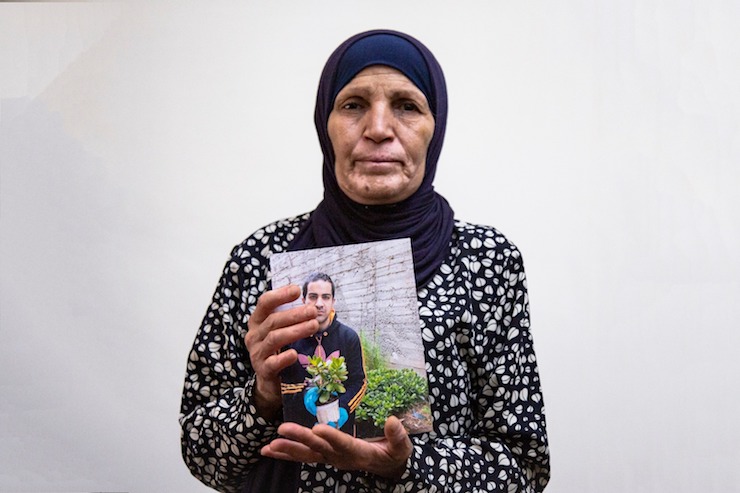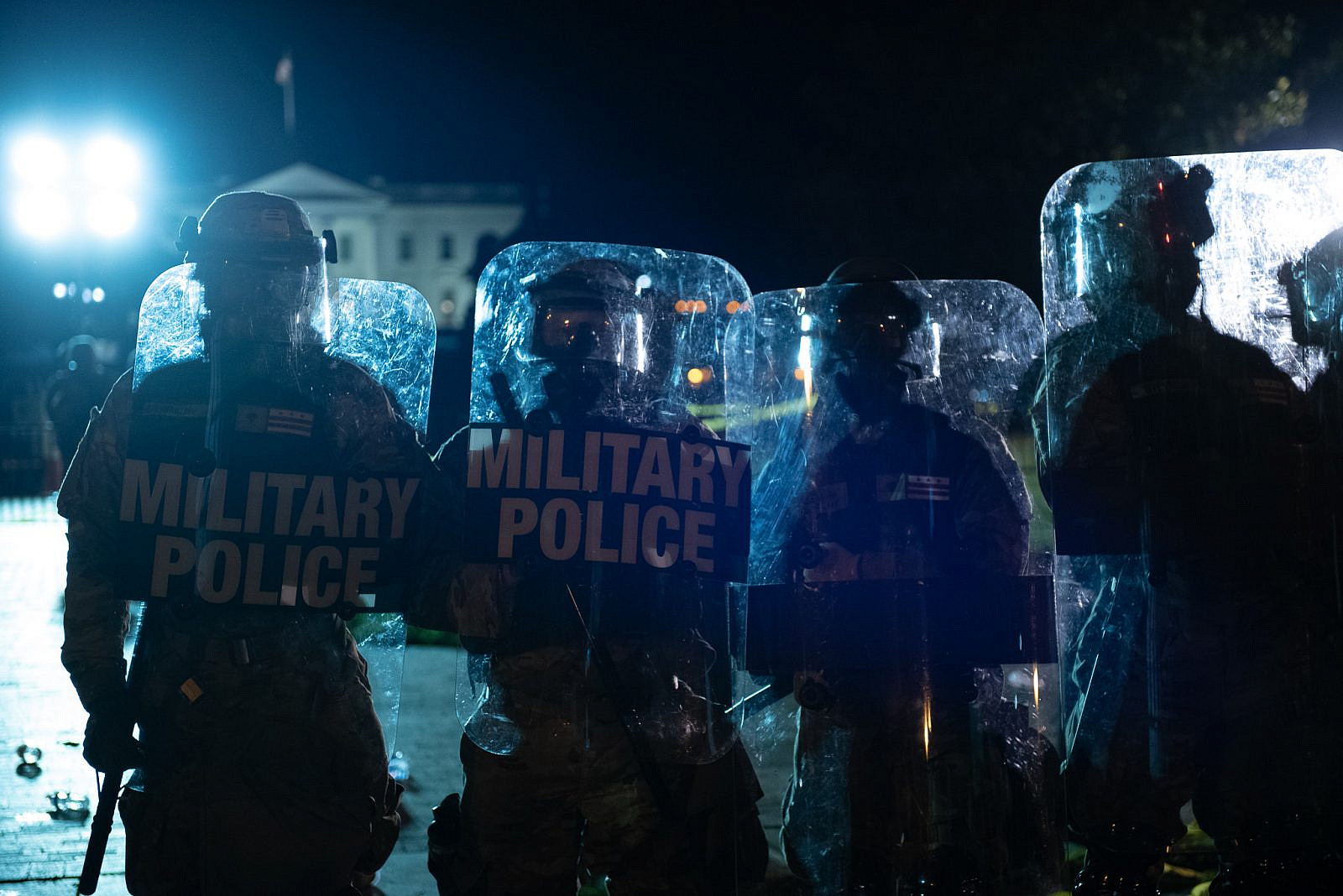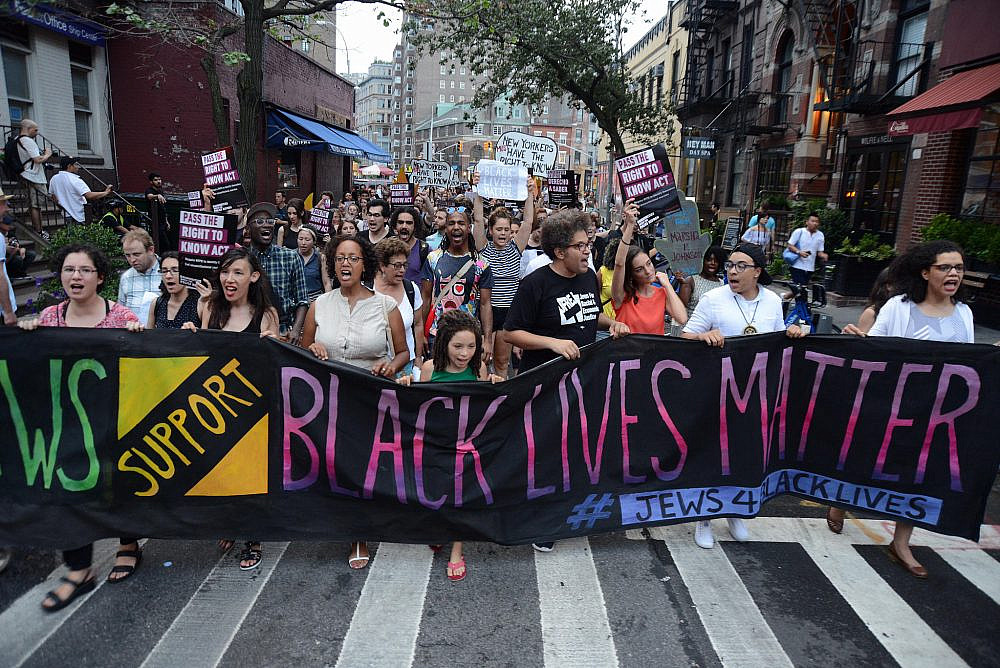George Floyd and Iyad al-Hallaq never met. They lived some 6,000 miles away from each other in totally separate worlds. But a shared tragic fate, incurred by state violence, forever links these two men: Floyd, an unarmed Black man, was murdered by police in Minneapolis, and Hallaq, an unarmed autistic Palestinian man, was murdered by Israeli police in Jerusalem the same week.
A week after his murder, which sparked mass protests across the U.S. and worldwide demanding racial justice and an end to police brutality, George Floyd has become a household name. He joins a too-long-list of names that includes Breonna Taylor, Ahmaud Arbery, Michael Brown, Eric Garner, Tamir Rice, Philando Castile, Oscar Grant, and countless other Black American men and women murdered by police.
Over the past week, I have seen calls from many American Jewish organizations and leaders calling on their community to know these names and to join the fight for racial justice. These actions are commendable and vital — as Jews, we must be active participants in this ever important and timely social movement.
Yet there is a glaring problem with the way many mainstream American Jewish organizations are responding to this critical moment: they have not applied the same values-based approach to Palestinian rights and Israeli state violence as they do to U.S. police violence. Because of this inconsistency, the responses of many Jewish groups to the current events in the United States seem hollow at best, and self-serving at worst.

I do not say this to debase Jewish support of the Movement for Black Lives, or to discredit Jewish participation in the current protests. I also am not equating the situation of Blacks in the United States with Palestinians living under Israeli occupation; they are different in their historical, political, legal, and cultural contexts.
Still, given their tremendous similarities, and that the American Jewish community is deeply invested in both countries, the silence of Jewish groups toward Israeli state violence speaks volumes. By failing to stand unequivocally for the rights of Palestinians when they are subject to such extrajudicial killings, we are devaluing our community’s stance against similar acts of violence in the United States.
Why was there no outcry from Jewish community leaders after the Israeli police murdered Iyad al-Hallaq? Why didn’t Jewish community leaders speak out in 2016 after Abdel Fattah al-Sharif , who was incapacitated after attempting to stab an Israeli soldier, was executed at close range by Elor Azaria even though al-Sharif did not pose a threat to the soldiers? Why are they more likely to remember the soldier’s name, but not the name of the man he murdered?
Or where was the response two years ago when an Israeli army sniper shot and killed Razan al-Najjar, the 21-year-old Palestinian volunteer paramedic murdered during Gaza’s Great March of Return while she treated a wounded protester? Why did the Jewish community respond with outrage when the policy platform of the Movement for Black Lives included a section in solidarity with Palestinians?
That silence from many American Jewish organizations is deafening now more than ever. For many, this dissonance makes it harder to take Jewish commitments to racial justice in the U.S. seriously, while the same groups strenuously work to uphold similar systems of oppression in Palestine-Israel.

The fact that many U.S. police departments train with Israeli officers makes the unwillingness to speak out on abuses toward Palestinians even more troubling. According to Amnesty International, Jewish organizations like the Anti-Defamation League, the American Jewish Committee, and the Jewish Institute for National Security Affairs have even paid for these trainings.
When police in the U.S. and Israel murder unarmed men in the same week, we should be hearing Jewish communities and organizations deliver a similar outcry for justice in both places. But the sad truth is that they don’t.
I therefore challenge fellow American Jews to ask themselves: How do you feel about Israeli personnel training American police officers? If something about it rubs you the wrong way, why is that? Do you know about the Deadly Exchange campaign seeking to end the U.S.-Israel police partnerships? Does the campaign offend you because it is part of Jewish Voice for Peace, which openly advocates for BDS? Where do you draw the line in defining your commitment to justice?
Ultimately, being an ally is rooted in shared political commitments and a steadfast refusal to acquiesce to injustice in all contexts. Jewish community leaders like to quote Dr. Martin Luther King, Jr. who famously wrote in his “Letter From a Birmingham Jail” that “injustice anywhere is a threat to justice everywhere.” To be a true ally in the fight against racial inequality, Jews must take this struggle on in both the United States and Israel, and leverage our influence and privilege in both places.
The silence we see today is not only complicity, but is also a betrayal of Jewish values and the rich tradition of Jewish participation in social movements. We must join the Movement for Black Lives and other Black-led groups, and actively support the protests on our streets. And it is essential that we speak out with equal zeal and righteous indignation against Israeli state violence and for justice for Palestinians.
The murders of George Floyd and Iyad al-Hallaq should be a reminder that the interconnected nature of their deaths makes this our struggle. If we are committed to justice for all, then we must refuse to uphold the racist and unequal systems that enable them.

